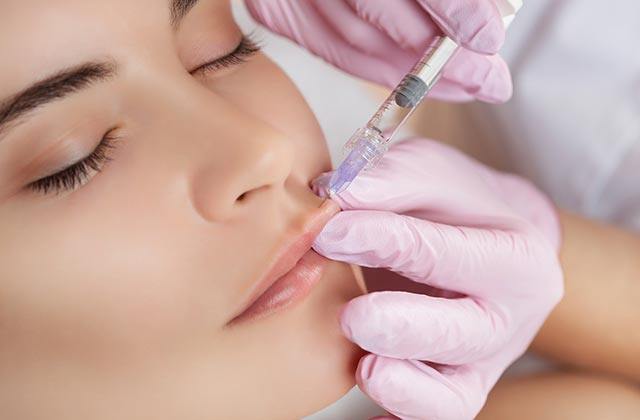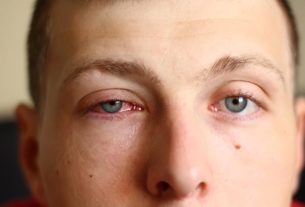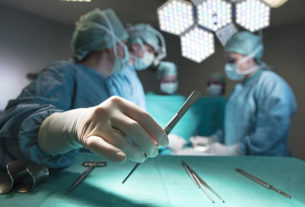You don’t have to turn into a zombie for this type of plastic surgery – but it might help!
Surgery without anesthesia in ancient times
Although the bizarre moniker “twilight surgery” has eerie ramifications of Rod Serling’s popular Twilight Zone television program of yesteryear, it actually is becoming an increasingly popular way to undergo some cosmetic procedures – without the administration of general anesthesia.
It might sound scary or perhaps even a little bit shocking, but in reality the benefits of twilight surgery are numerous. In fact, if you think you can handle the idea of a plastic surgeon cutting off part of your face, manipulating the bones in your nose or shaving off some ear cartilage while you’re wide awake, this could be the surgery for you.
Why Twilight Surgery?
Twilight surgery, which originated in the United States but is now becoming popular virtually worldwide, is carried out while patients are awake, although they are put under heavy sedation before going under the knife. In some cases patients wake up having no recollection of the procedure; in others, they remember every nip, cut and tuck.
How it works is simple. Instead of administering a general anesthetic, the surgeon uses a local one along with a sedative, one that makes the patient feel comfortably drowsy and relaxed. This allows him or her to talk during the surgery, in some cases, and actually move and be responsive to the surgeon when required.
Also known as twilight sleep, conscious sedation or monitored sedation, twilight surgery is not for the squeamish, even though both the local anaesthesia and sedative are administered by a qualified anesthesiologist. The latter may include nitrous oxide (laughing gas) or intravenous medications, and for patients who do not want to run the risk of general anesthesia, the benefits are obvious.
General anesthesia can be dangerous for certain people, such as heavy smokers, those who are dangerously overweight or those with certain medical conditions. Often patients worry that they will be put under and never wake up. When it comes to elective surgery, which plastic surgery more often than not is, twilight surgery can take away a considerable risk.
Local anesthesia as opposed to a general is beneficial for other reasons as well. For procedures such as a facelift, twilight surgery will allow patients to smile, laugh and frown during the course of the operation, so that the surgeon can check the movement of facial or wrinkles and, ultimately, achieve better results. With liposuction, the surgeon can ask the patient to stand up so her or she can access the result of their handiwork once gravity has taken its toll. This would not be possible under heavier sedation.
Types of Twilight Surgery
As far as plastic surgery is concerned, the consensus is mixed. Most surgeons would agree that facelifts, tummy tucks, eye lifts, ear pinning and nose jobs, also known as a rhinoplasty, can be carried out advantageously as twilight surgery. Others say that invasive procedures such as a breast enlargement operation can also have good results, while others believe it’s unsafe.
The decision, ultimately, is up to you and your surgeon – but make sure you only use one accredited by the American Society of Plastic Surgeons, or its equivalent, for best results. And as twilight surgery is relatively new, only use a surgeon who has done the procedure before many, many times before. Remember, you only live once – so ensure you do the best to take care of your health while you can, and don’t stint on money when it comes to something like an operation.
Disadvantages of Twilight Surgery:
In some case, twilight surgery is there to alleviate anxiety if a patient has had a traumatic experience while under general anesthesia. So if the thought of being awake during your operation causes you evenmore undue stress, perhaps you should opt for a general anesthetic.
Other disadvantages include…
* In some cases, the patient could move or flinch during the operation, not a good idea when a surgeon is wielding a large knife…
* Patient could suffer a bad experience during the operation and later feel traumatized
* Often patients can feel a minor pulling and/or tugging during surgery, which some may find unpleasant
Advantages of Twilight Surgery:
* The advantages are numerous, although remember that twilight surgery is not suitable for every type of cosmetic procedure…
* Patient can respond to surgeon and move face or other body parts during the operation
* Quicker recovery period than surgery performed under general anesthesia
* No complications or difficulties associated with general anesthesia
* Shorter hospital stay, in most cases, as opposed to surgery done under general anesthesia
* No breathing tube required during surgery or after
Many patients say they have less bruising and bleeding afterwards, as well as no post-operative nausea, which is a common after-effect of general anesthesia
Twilight sleep is commonly used during dental surgery with few complications, although some people worry (unduly) that they will reveal some embarrassing secret to their dentist while they are under, or will do something they will regret. Remember that everyone has a different reaction to specific medications, and that a true professional will not even notice if you act a bit more brazen than usual – they may even enjoy it!
However, twilight surgery is not for everyone, especially the squeamish or those who experience deep anxiety when even contemplating an operation. But if your plastic surgeon believes you will have better results with twilight surgery, as in the case of a facelift, nose job or liposuction – or if you have had a bad experience with general anesthesia – this may be a good option for you.
Remember, many common operations, such as eyelid surgery, dental surgery and nose jobs, are done with twilight sedation and local anesthesia. It all depends your own comfort level, as well as the comfort level of your plastic surgeon. If the two of you make a joint decision that twilight surgery is the best plan to follow, then by all means go with it. Just make sure you don’t wake up looking like Rod Serling!
The information in the article is not intended to substitute for the medical expertise and advice of your health care provider. We encourage you to discuss any decisions about treatment or care an appropriate health care provider.



